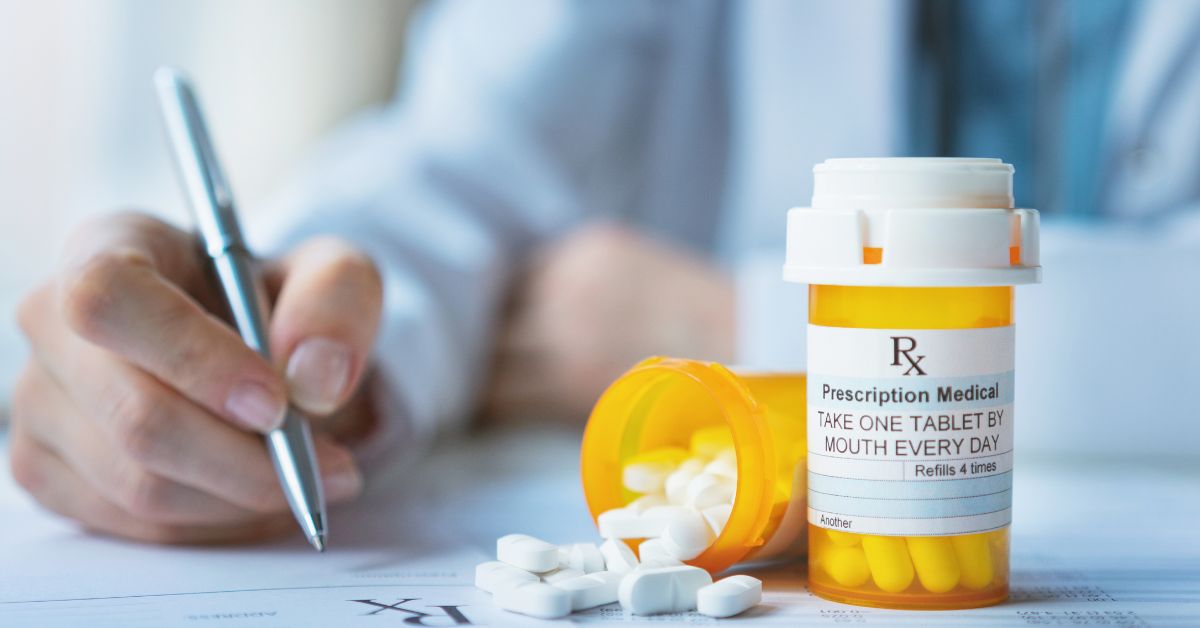Why We Need to Streamline Overdose Reversal Medication for Synthetic Opioids
Naloxone is a life-saving medication that can be administered when a client experiences an opioid overdose. This medication can reverse an overdose of fentanyl, heroin, and other prescription opioid medications. Naloxone can be administered via injectable or by prefilled nasal spray.
In 2017, over 47,000 people lost their lives over an overdose of opioids, including fentanyl, heroin, and prescription pain relievers [1]. With the right steps to streamline the opioid overdose reversal medication, paramedics will be more easily able to save the lives of those experiencing an opioid overdose.
There are many significant reasons why it’s imperative to streamline overdose reversal medication for synthetic opioids:
The Usefulness of Naloxone for Overdose Reversal
Naloxone is an opioid antagonist. The drug works by attaching to opioid receptors to successfully reverse and block the effects experienced during the overdose.
Benefits of Streamlining Naloxone
When given in time, naloxone can provide more time for intervention by emergency responders.
Lower Cost of Opioid Overdose Treatment
The overall cost of opioid addiction and overdose treatment is significant. However, the cost also varies based on various factors like state laws. According to a journal on Drug and Alcohol Dependence, the economic cost of the U.S. opioid epidemic was a little over $1 billion [2].
In managing the cost of opioid addiction and overdose, mental health experts can either manage the risks or streamline overdose reversal medication. To manage the risk of opioid overdose to lower the cost of treatment, it’s imperative to follow crucial strategies like:
- Prevention & Education: Encourage mental health providers, people at risk for overdose, and family members to learn how to manage or prevent opioid overdose. Overdose prevention centers can provide resources that can help educate.
- Encourage the public to call 911: Any individual experiencing opioid overdose requires immediate medical attention to avoid complications. Hence, members of the public should be encouraged to call 911.
- Encourage Prescribers to Use State Prescription Drug Monitoring Programs (PDMPs): State PDNPs help address the wrong use of prescription opioids, which helps reduce the possibility of opioid overdose or death.
Lowering the cost of opioid overdose treatment may also require mental health clinics to improve engagement, ongoing monitoring, and adopt smart prescribing.
Managing the risk of opioid overdose to control the cost of opioid overdose treatment is significantly effective. Mental health clinics need to ensure law enforcement and those receiving the medication are doing so based on appropriate risk management guidelines. A sample guideline is one by the United Nations Office on Drugs and Crime [3].
Get a free demo of Procentive today!
Easy Accessibility to Naloxone
When naloxone gets administered early, there’s a higher chance of preventing opioid overdose-related deaths. For this reason, it’s imperative to improve the accessibility to naloxone. The FDA approved naloxone auto-injector and intranasal naloxone products in situations of an overdose. However, before 2012, only six U.S. states had laws that expanded access to naloxone.
In mid-2017, most states and the District of Columbia enacted statutes providing criminal liability protections to first responders administering naloxone. Thirty-seven states also have statutes offering criminal liability protections for naloxone prescription and distribution.
One of the suitable ways to improve accessibility to naloxone is through pharmacy distribution. By law, nine states in the United States give pharmacists direct authority for naloxone prescription and sales.
After passing those laws, overdose deaths fell by 34 percent. There needs to be increased adoption of those laws in other states to improve naloxone accessibility.
Given the non-addictive and safe nature of naloxone, policymakers and advocates call for it to be sold over the counter. Greater sales of naloxone as an OTC medication should increase the chances of opioid overdose reversal.
Another method of improving the accessibility of naloxone is co-prescribing the drug to patients with opioid prescriptions at risk of opioid overdose. Examples of these patients include those with concurrent benzodiazepine use, a history of overdose, and a history of higher opioid dosages [4].
Save Time for Mental Health Practice Management
Streamlining overdose reversal medication for synthetic opioids can also help save time for mental health professionals. Generally, an effective process of streamlining medication management can save up to 2 hours daily or 10 hours every week.
With the additional time streamlining offers, professionals can have more time with the patients. This extra time can also encourage mental health professionals to manage medication non-adherence.
Since achieving optimal medication-taking behavior is collaborative, having more time to speak with patients is imperative. Streamlining overdose reversal medication saves time for patients, physicians, mental health experts, and even medical assistants.
Reduces the Growing Opioid Crisis
Streamlining naloxone as an overdose reversal medication for synthetic opioids is one of the top strategies for addressing the opioid epidemic.
According to the U.S. Department of Health and Human Services, naloxone distribution effectively reduces the growing opioid crisis. In 2018, a U.S. Surgeon General referred to naloxone as a “safe antidote” for those at risk of opioid overdose.
Between 1999 to 2020, over 564,000 people lost their lives due to an opioid overdose. The growing opioid crisis can be categorized into three specific waves [5]:
- The first opioid overdose death wave involved increased opioid prescription in the 1990s. This wave involved natural, semi-synthetic opioids and methadone.
- The second wave of overdose started in 2010. However, this wave was primarily heroin
- The third major wave started in 2013, and there was a significant increase in overdose deaths involving opioids, especially those that involved fentanyl.
In combatting the growing opioid epidemic, it’s crucial to prioritize streamlining overdose reversal medication.
Get More Time to Care for Patients with Procentive
Utilizing Procentive in practice management can be effective for patient outcomes. Our software will help save time and provide you with more time to care for your patients. For this reason, they can provide a major role in a more positive patient recovery experience.
Procentive is a full-featured, simple EHR solution for behavioral health practice. As mental health experts, you can get all you need to power your practice in one place. Procentive also provides an easy-to-use interface and constant web-based access. The EHR solution also encourages paperless records, easy scheduling with alerts, and comprehensive reporting.
Try out Procentive to experience the intuitive system with multiple fully integrated practice aids. Get a free demo today.
References
- https://www.cdc.gov/drugoverdose/data/statedeaths.html
- https://www.sciencedirect.com/science/article/abs/pii/S0376871620305159?via%3Dihub
- https://www.unodc.org/documents/scientific/STNAR55_Ebook.pdf
- https://ldi.upenn.edu/our-work/research-updates/expanding-access-to-naloxone-a-review-of-distribution-strategies/
- https://www.cdc.gov/opioids/basics/epidemic.html
The Role of Mentorship in Long-Term Substance Use Recovery
In long-term substance use recovery, mentorship helps individuals set achievable goals and connect to a sober community. Mentors also provide a good source of support and motivation during cravings, helping to avoid relapse. Mentors often serve as one of the most valuable resources for recovery in individuals experiencing substance use disorder.
Recovery mentors can help navigate health, employment, and even the criminal justice system. Hence, selecting a great mentor may require significant scrutiny by mental healthcare providers. Here are some of the major roles a recovery mentor plays in their relationship with an individual throughout their substance use recovery journey:
Benefits of Mentorship for People in Substance Use Recovery
The concept of recovery mentors is relatively new in substance use recovery. However, there are many benefits to working with a mentor during your recovery journey. Here are some of the significant advantages of having a mentor:
Accountability
Mentorship programs provide accountability for individuals going through substance use recovery. People going through recovery can check in with a mentor at specific times of the week and show accountability for their actions. Research also shows that accountability can be helpful in addiction recovery. Participants who had sponsors and engaged in 12-step programs were more successful at staying abstinent than those who started a sobriety journey without outside support [1].
Complete honesty and transparency about addiction experiences help in commitment to sobriety. It usually helps the person acknowledge responsibility to make better decisions regarding substance abuse. Honesty through accountability also helps the individual understand patterns of thinking and behaving that could cause relapse. With an understanding of these patterns, there can be a significant change.
Guidance
The journey to complete recovery may seem significantly complex. Hence, mentors provide continuous guidance for individuals going through recovery. With guidance from a mentor, the patient can get better insight and self-awareness to recover. Proper guidance also gives a new perspective and helps people identify any habits or behaviors that may need correction.
Mentor-provided guidance will help individuals revisit their coping strategies. When the individual feels the urge to consume any substance, they can call the mentor to get the guidance they need.
Mentors can also help provide the best advice for individuals when creating and repairing their relationships. They offer support in creating healthy relationships as an imperative part of recovery.
Get a free demo of Procentive today!
Relationship of Trust
Often, those who go through the addiction recovery process feel alone. Most individuals typically have damaged relationships and have little to no one they feel they can trust. A mentor always supports individuals, helping them repair and rebuild trust in themselves and others. Hence, a recovery mentor becomes an individual you can rely on.
Recovery mentors teach individuals experiencing substance use disorder how to regain the trust of loved ones. One of the methods commonly suggested is leaving the lines of communication open. Mentors may advise keeping contact with loved ones by setting up a time to talk to each other. In most cases, rebuilding the relationship is much easier when they observe a change in previous addiction patterns.
Continuous Support
Recovery mentors can help individuals by providing support and also helping them get the best out of “social support.” Continuous support gives a sense of belongingness and inclusion, hope and optimism, and safety and security [2].
Support from mentors and social support will help provide valuable information to help in recovery. It will also help offer desirable resources and concrete assistance on the road to recovery [3].
How Mental Health Providers Can Encourage Seeking Out Mentorship
Mentors significantly help the road to substance use recovery. How can mental health providers encourage others to seek out mentorship? Here are some of the most effective methods to consider:
Enlightenment on the Benefits of Mentorship
An effective method of encouraging individuals to seek out mentorship is by enlightening them on its benefits. Mental health providers should provide a detailed breakdown of how mentorship can help in accountability, guidance, and support.
Ensuring Mentorship is an Imperative Step for Recovery
Finding a qualified recovery mentor takes a lot of work. Recovery clinics should seek out the best prospective mentors based on their qualifications, including experience in the mental health field. Facilitating mentorship matches or assigning mentors can help ensure that qualified mentorship is achieved.
What Makes Up a Good Mentor
A significant level of scrutiny goes into selecting a good mentor. Apart from the necessary qualifications, here’s what makes a good mentor:
- Good communication skills: Mentors should be able to pass their message clearly without confusion. It’s also important that mentors are empathetic in their speeches.
- Experience working in the substance use recovery field: Significant experience in the substance use recovery field will help prospective mentors know how to approach addiction recovery situations.
- Relevant educational background: Depending on the recovery clinic’s requirement, the prospective mentor should possess the necessary diploma or any relevant degree.
Can Mental Health Providers Work as Mentors?
Mental health providers can also work as mentors as long as they have experience in long-term recovery. However, mentors don’t diagnose or treat addiction and mental health issues, unlike other mental health experts.
All mentors focus on helping those undergoing recovery to make the right decisions to improve their lifestyle. Compared to mental health experts, mentors must understand various recovery pathways. However, a major similarity between mentors and other mental health providers is in implementing the 12-step programs [4].
Get the Best as a Mental Health Provider Using Procentive
With the significantly long list of responsibilities of mentors and other mental health providers, utilizing a system for optimization is imperative. As a mental health provider, you can enjoy a full-featured, simple EHR solution for your practice. Every tool you need to power your practice is in one place.
Procentive is an EHR solution that offers an easy-to-use interface, 24/7 web-based access, comprehensive reporting, and easy scheduling with alerts. Providers can also get dynamic forms and clinical templates to speed up the documentation and adapt them to personal needs. Get everything you need to optimize your practice. See Procentive in action for yourself with a free demo.



